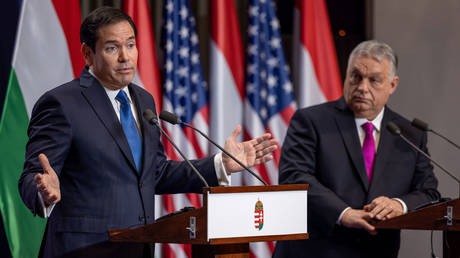
The government’s record new draft budget comes as the Defense Ministry cites “increasingly challenging” threats
The Japanese government has approved a record draft budget for the next fiscal year, including increased spending on defense. The 115.5 trillion yen ($730 billion) budget plan released by the Finance Ministry on Friday marks a 2.6% rise on the current year.
Defense expenditures account for 7.5% of the total budget, or roughly $55 billion. The figure marks the 13th consecutive year of increase, according to Kyodo news agency, and a 0.5% increase from the current fiscal year. The document includes funds for mass production of long-range missiles with standoff defense capabilities, the agency noted.
Japan, one of NATO’s partners in the Indo-Pacific region, has indicated that it will increase its defense related budget to 2% of GDP by fiscal 2027, in line with the requirements of the US-led military bloc. Based on Japan’s 2023 GDP of $4.213 trillion, its military expenditure should amount to over $84 billion.
In a statement on Friday, the Defense Ministry said Japan and its ally the US are facing an “increasingly challenging strategic and nuclear threat environment.”
Japanese Prime Minister Shigeru Ishiba, who assumed office in October and previously served as a defense minister, has long advocated for the creation of an Asian version of NATO to counter potential threats from China and North Korea. Japan and the US have been strengthening defense cooperation in the face of perceived threats from both countries.
Last month, Kyodo reported that Tokyo and Washington were working on a joint contingency plan in the event of a military conflict between Taipei and Beijing. The US military would reportedly set up temporary bases along Japan’s southwestern Nansei island chain to deploy missile units as part of the plan, the agency wrote, citing sources familiar the matter.
READ MORE: US, Japan draw up Taiwan contingency plan – media
Russia, which shares a maritime border with Japan, has said that if the US stations missiles in the island nation, it would threaten Russian security and prompt Moscow to retaliate.




